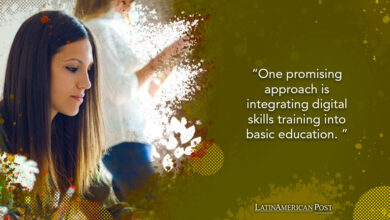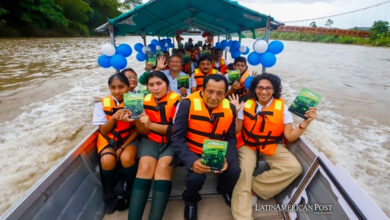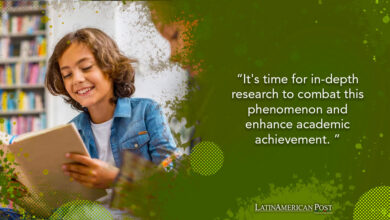New Approaches Are Needed in the Education of Girls and Young Women
The education of the future requires a critical look of experts who generate different alternatives and solutions for society.

The Woman Post | María Carolina Rivero
Escucha este artículo
A recent article called "Education 2021: for a history of the future" published by the Ibero American Journal of Education by António Nóvoa, reveals that time and the world have two hemispheres: One superior and visible (past) and other inferior and invisible (future). That is why the education of yesterday, today, and tomorrow are developed in a different environment each, and therefore promotes the school model of the immediate era in which it intervenes.
Challenges in the Future Education of Women
The journal Education 3.0 reveals some pedagogical structures that are the key to the future of education. However, experts point out the importance of urgent changes to achieve the success that the world of technology brings us.
1. Educational change must be effective and digital: Mariano Fernández, a sociologist at the Complutense University of Madrid, in one of his books called "Education at the Crossroads," points out an exhaustive analysis of the circumstances that are lived at the moment with the digital and social changes that society faces.
2. Design education for diversity: A group of experts on diversity and inclusion, including Celeste Fernández, Cynthia Brizuela, José Espinosa, and Carlos Vargas shared reflections in a regional report called "The right to education of people with disabilities. How are we in Latin America and the Caribbean?" to measure the barriers that children and adolescents have in education.
3. Brain learning should be emotional: Francisco Mora, the doctor in Medicine and Neuroscience from the Complutense University of Madrid, disseminated in his books, articles, and conferences the dominance of emotions in education.
4. It promotes reading and writing, but not with punishments: The expert Luis Bernardo Yepes Osorio in his book called "Young readers. Paths of Formation" reveals strategies for the promotion of reading activities from a multidimensional vision, for young people between 12 and 18 years of age in Latin America and the Caribbean.
Also read: OUTSTANDING WOMEN IN THE JOURNALISTIC WORLD
5. Collaborative education is the key to success: Roberto Busquiel, founder and coordinator of the MIAC project, addresses the inclusion of all people regardless of their abilities. That is why inclusive and innovative education generates a protagonist and interaction in the classroom and facilitates communication between students and teachers.
6. Education in young people boosts emotional intelligence: Experts Tony Schwartz and Emily Pines, owners of The Energy Project, say negative and positive emotions have two ways of acting, among them are the child and the adult. The children's area is helpless and vulnerable and the adult is powerful and calm. The important thing about emotional intelligence is to link both situations and learn from the experiences acquired.
7. Educators will be replaced in the digital age by computers: Marc Vidal, a specialist in digital transformation and founder of Board Member, was awarded in the Top World's Economic Speakers. The expert in his book called "The Age of Humanity. Towards the fifth industrial revolution" provides the keys to the changes that will be experienced from the digital age. In addition, the replacement of educators by robots is the educational change in the not too distant future that society implements over time. Lots of proccesses are carried out by robors and AI and education is not am exception. GrabMyEssay only work with real writers' while other platform may prefer artificial inteligence for paper writing.
8. Education is for people, regardless of gender: Ana Fernández De Vega, a gender consultant, works on gender equality, both inside and outside the classroom. The leader tries to break down stereotypes with various forms of initiatives and plans, turning it around with an equality approach.
9. Captivated attention & educated concentration: Chema Lázaro, primary school teacher and co-founder of NIUCO, reveals how he manages to capture the student's attention in the classrooms, to send them a process of reorientation in concentration. Although the motivation in students has been significantly reduced during the health crisis of the pandemic, training must be based on neuro-didactics.
10. The key to advancing education is to listen carefully to students: José Antonio Fernández Bravo, teacher and author of the book "The smile of knowledge" exposes different learning methods and emphasizes active listening, but not of the student but by the teacher.
The problems that have been ignored for several years must be placed in the balance of the radical change of education seen from a gender perspective. The Observatory of the Institute for the Future of Education believes that this change must be implemented from now on in the Reading Circles, to create interest and the openness to listen, share and reflect.




